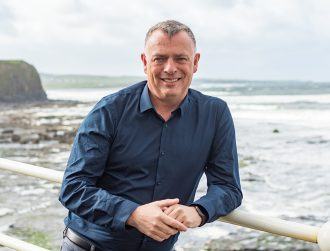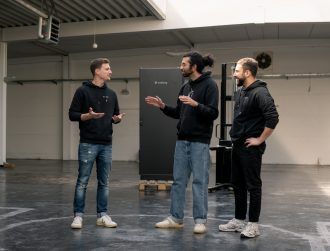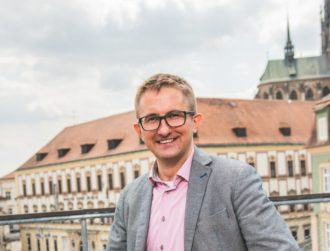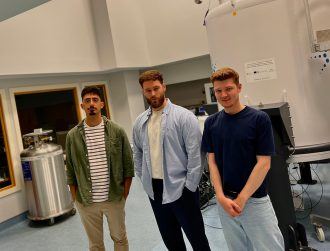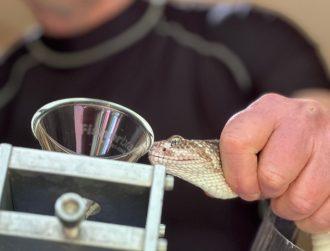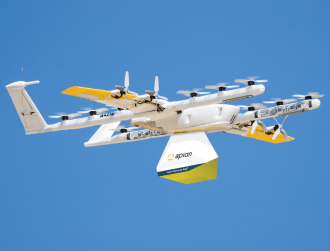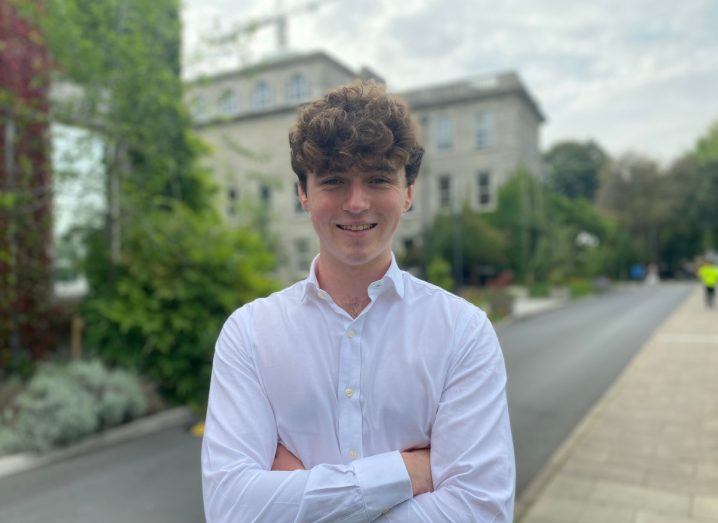
Brian Kelleher. Image: Microdoc
A former Patcher, Naughton scholar and coding Olympiad finalist, Kelleher launched Dublin-based paperwork automation start-up Microdoc last year.
Brian Kelleher has been building software to solve problems since he was 11 years old. From autopilot software for hobby drones and making video streaming websites to creating machine learning models that predict housing prices, age has been no barrier to this coding enthusiast.
Naturally, therefore, when struck by the lack of automation at a medical practice while working as a secretary a few summers ago, Kelleher wrote a software that automated his job of filing medical documents, accompanied by a web app to make the lives of fellow secretaries easier.
Today that software has grown into Microdoc, a paperwork automation tool for doctors that leverages the power of AI and machine learning.
“I build software that I would have loved to have as a secretary or medical professional,” says the 19-year-old second-year student of maths and economics at Trinity College Dublin, making him one of the youngest founders ever to feature in our Start-up of the Week series.
“We provide doctors with a suite of automation tools around the processing, creation and distribution of medical paperwork, using AI to analyse medical information and deliver smart insights and productivity gains.”
Filling the gaps in traditional automation
Automation tools developed by Microdoc, which is based at Dogpatch Labs, can integrate with a doctor’s existing tools, making the adoption process simpler and allowing them to continue to treat their patients without disruption.
To that end, Microdoc has two main offerings: an AI dictation tool and a paperwork review tool.
Kelleher says the dictation tool uses fine-tuned large language models to turn “imperfect, error-ridden” dictations into “polished pieces of medical documentation” such as referral letters and clinical notes.
Meanwhile, the review tool uses machine learning models developed at Microdoc to extract information such as the patient’s name and date of birth as well as medical insights and clinical observations.
“In both cases, our integration with the doctor’s existing patient management system allows us to build custom workflows – such as automatic filing of medical documents and context-aware medical dictations – that traditional automation software is unable to,” he explains.
The idea is to transform how doctors interact with paperwork while building a large and durable business.
“We want to free doctors to focus on providing the highest levels of patient care, unencumbered by paperwork. I see this materialising in a few ways,” adds Kelleher, who is an Emergent Ventures grantee, Naughton scholar and programming Olympiad finalist.
“One is a medical copilot – listening in the background, taking action where necessary. Another is where patient management systems become significantly smarter and automation oriented, allowing doctors to automate complex workflows easily and intelligently.”
Microdoc currently targets deals with individual practices worth between €2,000 and €10,000 per year. But the start-up, founded last year, wants to expand further into large group practices.
“A large incumbent in the space of medical automation and dictation brought in $1.3bn last year in revenue and is valued at over $17bn. This is a space that is ripe for disruption.”
And Microdoc seems to be right on track to usher in said disruption. Since its founding, the start-up has grown to become a team of six people – including fellow Trinity student Richard Blazek.
“We are generating thousands in monthly recurring revenue, and since launching our dictation tool in June, have grown to more than 110 physios, secretaries and doctors across 80 practices using our platform,” Kelleher says.
Irish ecosystem is ‘somewhat fragmented’
Now hiring off the back of its revenue growth, including looking for a senior developer to join the team, Microdoc wants to increase the momentum with some funding.
“We want to continue to refine the product and solidify our product-market fit, as well as building a sustainable and scalable sales process for large enterprise customers.”
But finding good engineering talent and “calibrating” his ambition well have been challenges along the way, according to Kelleher, who participated in the Patch start-up accelerator for young people in 2020.
“One thing I have learned to do is to elevate my personal ambition deliberately – a lack of ambition seems to be an Irish phenomenon, at least when compared to other major start-up hubs like New York and San Francisco,” he notes.
Kelleher describes Ireland’s start-up ecosystem as “fantastic, if somewhat fragmented” and says that it’s difficult to find a good peer group of start-up founders, or to “even know where to start”.
“I’ve had the benefit of communities like Patch, Emergent Ventures, the Thiel foundation and others, but as someone who is trying to find peers without these communities to help, I suspect it would be quite difficult,” he says.
“It is extremely heartening to see very accomplished entrepreneurs give up hours every week to help start-ups in the same fashion that they were helped before. I hope one day I can give back to the community by giving my time and expertise as generously as it was given to me.”
10 things you need to know direct to your inbox every weekday. Sign up for the Daily Brief, Silicon Republic’s digest of essential sci-tech news.

